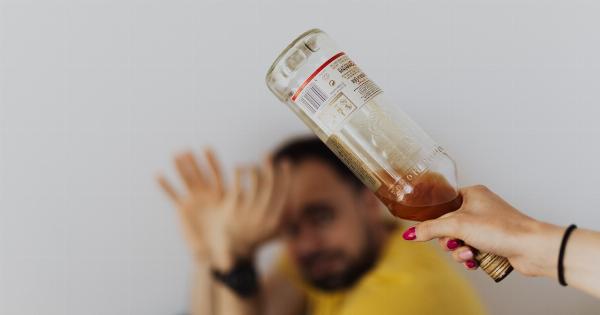Alcohol abuse is a serious problem that affects millions of people worldwide. It can cause health problems, mental health issues, and lead to addiction.
Preventing alcohol abuse can be challenging, but with the right strategies and mindset, it can be achieved. Here are ten steps to preventing alcohol abuse:.
1. Set a Limit
Setting a limit on how much alcohol you consume can help prevent abuse. It is essential to know your limit and stick to it. One way to do this is by limiting the number of drinks you have per day or week.
For instance, you can decide to have one or two glasses of wine per day and no more than four in a week.
2. Avoid Trigger Situations
Avoiding situations or environments that trigger your desire to drink is another way to prevent alcohol abuse.
For example, if you know that going to bars or parties where alcohol is served will make it challenging for you to control your drinking, it is best to stay away from such situations.
3. Choose Non-Alcoholic Drinks
Another step to preventing alcohol abuse is by choosing non-alcoholic drinks. Instead of having beer or wine, opt for a non-alcoholic beer or soda. Non-alcoholic drinks can help you enjoy a social gathering without drinking alcohol.
4. Seek Social Support
Seeking social support from friends or family members can help prevent alcohol abuse. Having someone to talk to and share your concerns with can be helpful in preventing alcohol abuse.
Friends or family members can provide encouragement and help you stay on track with your alcohol use goals.
5. Practice Stress-Relieving Activities
Stress is one of the leading causes of alcohol abuse. To prevent alcohol abuse, it is essential to practice stress-relieving activities such as exercise, meditation, or yoga.
These activities can help reduce stress levels and prevent you from turning to alcohol as a coping mechanism.
6. Develop New Habits
Developing new habits can help prevent alcohol abuse. For example, instead of going to a bar after work, you can take a walk, go to the gym, or join a club. Developing new habits can help you avoid situations that may lead to alcohol abuse.
7. Know Your Triggers
It is essential to know your triggers and factors that lead to alcohol abuse. Triggers can be anything from stressful situations, emotions, or environments.
Knowing your triggers can help you avoid situations or develop coping mechanisms to help you deal with your triggers better.
8. Seek Professional Help
Seeking professional help is crucial in preventing alcohol abuse. A doctor or counselor can help you develop coping mechanisms or provide treatment for underlying mental health issues that may be contributing to your alcohol abuse.
9. Find Accountability Partners
Having accountability partners can help you stay on track with your alcohol use goals. An accountability partner can be a friend, family member, or a support group. They provide support, encouragement, and help you stay focused on your goals.
10. Recognize the Consequences
Understanding the consequences of alcohol abuse is essential in preventing it. Alcohol abuse can have disastrous effects on your health, career, relationships, and overall quality of life.
Recognizing the consequences can be a motivator to avoid alcohol abuse and stay on track with your goals.































